Description
Digital economics is a new economic form that results from growing connections among devices, with digital technology being the core driver and data being the key production factor. Digital economics can have a massive impact on society, including reducing fuel emissions by analyzing vehicle sensor data in intelligent transportation systems, tracking pandemic infection patterns using mobile data, and even climate-smart farming by incorporating data from seeds, satellites, and sensors. This track will discuss important issues in digital economics, including but not limited to Internet and platform economics, resource and information pricing, data trading, online advertising, social networks, and social learning.
Our societies and economies have been drastically transformed by Internet, the network of networks. With the evolution of information and communication technologies, such as optical fiber communication, smart phones, wireless and mobile access networks and Internet of Things, new applications, business models and market places exploiting Internet have been quickly emerging in the past few decades. In specific, Internet of Things (IoT) enables collection, exchange and analysis of enormous amount of data generated by billions of connected devices and a new wave of digital economy growths.
This proposed session is aimed to expose the audience to some techno-economic issues of Internet and to facilitate accessible and interdisciplinary discussions of Internet economics through five specific subjects. These subject discussions will combine various aspects of Internet technology and services, some prominent economic issues, market mechanisms of the digital economy and future trends. The five subjects are as follows:
- Introduction to EU single digital market
- Internet exchange and peering: practice and trends
- Vertical application in 5G – a Hospital-as-Vertical-Operator case
- Integrated computing and communication resource allocation between edge and cloud service for smart manufacturing
- Blockchain Technology: Key Enabler for Next Generation IoT Services and Applications
The intended audience for this track includes engineers & practitioners, researchers, entrepreneurs, students, academic professors, students, industrial business and technical managers and executives who would like to learn the techno-economic intertwines of Internet economics and to jointly envision its future growths and opportunities through session discussions.
Track Chairs
Prof. Jianwei Huang, The Chinese University of Hong Kong, Shenzhen, China
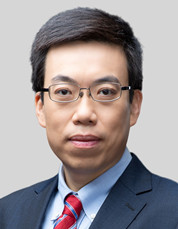
Jianwei Huang is a Presidential Chair Professor and Associate Dean of the School of Science and Engineering, the Chinese University of Hong Kong, Shenzhen. He also serves as Vice President of Shenzhen Institute of Artificial Intelligence and Robotics for Society, and the Editor-in-Chief of IEEE Transactions on Network Science and Engineering. He received the Ph.D. degree in ECE from Northwestern University in 2005, and worked as a Postdoc Research Associate in Princeton University during 2005-2007. From 2007 until 2018, he was on the faculty of Department of Information Engineering, the Chinese University of Hong Kong. His research interests are in the area of network optimization, network economics, and network science, with applications in communication networks, energy networks, data markets, and crowd intelligence. He has published more than 300 papers in leading venues, with a Google Scholar citation of 14900+ and an H-index of 61. He has co-authored 10 Best Paper Awards, including the 2011 IEEE Marconi Prize Paper Award in Wireless Communications. He has co-authored seven books, including the textbook on “Wireless Network Pricing.” He is an IEEE Fellow, an IEEE ComSoc Distinguished Lecturer, and a Clarivate Web of Science Highly Cited Researcher.
Dr. Shi-Chung Chang, National Taiwan University, Taiwan, ROC
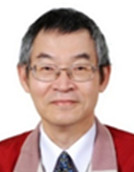
SHI-CHUNG CHANG received the B.S.E.E. degree from National Taiwan University, Taiwan, Republic of China, in 1979, and the M.S. and Ph.D. degrees in electrical and systems engineering from the University of Connecticut, USA, in 1983 and 1986, respectively. He is currently a Professor jointly appointed by the Electrical Engineering Department, Institute of Industrial Engineering, and the Graduate Institute of Communication Engineering, National Taiwan University. Dr. Chang was a Research Fellow of Smart Network System Institute, Institute for Information Industry, Taiwan, 2013-2016. He was a commissioner of the National Communications Commission, Taiwan from 2010 to 2012, and led the execution of digital terrestrial TV switchover. His research interests include optimization and control with applications to communication networks, production and power systems, distributed decision making, network management and economics, and shared wireless accesses. He has been a principal investigator and consultant to many industry and government funded projects in the above areas, and has published more than 200 technical papers. He was invited as a distinguished lecturer by Singapore Semiconductor Industry Association, April 1~3, 2014. He received, in 1996, the award of outstanding achievements in University-Industry Collaboration by Ministry of Education for his pioneering and successful research collaborations with Taiwan semiconductor industry on production scheduling and control. Dr. Chang is a member of Eta Kappa Nu, Phi Kappa Phi, and Academy of Distinguished Engineers, University of Connecticut.
—————————————————————–
Indf-05-1: Network Economics
Abstract
Digital economics is a new economic form that results from growing connections among devices, with digital technology (e.g., Internet, mobile technology and Internet of Things) being the core driver, and data being the key production factor. Digital economics plays an important role in the digital era and has a massive impact on society, including reducing fuel emissions by analyzing vehicle sensor data in smart transportation systems, tracking pandemic infection patterns by using mobile data, and even climate-smart farming by incorporating data from seeds, satellites and sensors. With the aggressive use of data, digital economics is transforming business models, creating new services and products, and providing novel market platforms. Different from traditional economics, digital economics places paramount importance on the explosively growing data. Internet of Things (IoT) enables digital economics by collecting and analyzing data generated by billions of connected devices. With data being a new enormously valuable asset, digital economics incentivizes the strategic generation, exchange, and use of high-quality data. To this end, we need to rethink data valuation, efficiency, fairness, transparency, privacy, and security in digital era. Furthermore, digital economics is built upon online multi-sided platform marketplaces, such as Amazon, Taobao, Uber, and Airbnb, which enable people to interact, share, and collaborate online. This leads to new network economics issues, such as online advertising, service matching and pricing.
The goal of starting the digital economics research is to investigate the optimization of the effectiveness and efficiency of marketplaces in digital era. Digital economics rethinks the role of data, as an asset for data generators in IoT systems, as well as the online marketplaces, which bring service providers and consumers together in digital era. The emerging digital economics combines the study of Internet, IoT, networks, economics, big data analytics, and artificial intelligence into an exciting new area. It has the potential to generate new scientific research and breakthroughs in academic community, and fuel job opportunities and economic growth in industry. In this track, both interesting research problems in digital economics and practical commercial solutions for companies will be discussed. This track will cover the following topics:
- Internet Economics and Platform Economics
- Resource and Information Pricing
- Valuation of Personal Data and Data Marketplaces
- Online Advertising, Auctions and Pricing
- Social Networks and Social Learning
- Circular Economy and Carbon Neutrality
We expect that all of conference attendees will be able to understand the value of digital economics for sustainable and thrive in the digital era. Furthermore, we aim to build a bridge between academia and industry to further promote the development of digital economics research and practice.
Chairs
Dr. Xu Chen, Sun Yat-sen University

Xu Chen is a Full Professor with Sun Yat-sen University, Guangzhou, China, and the Vice Director of National and Local Joint Engineering Laboratory. He received the Ph.D. degree in information engineering from the Chinese University of Hong Kong in 2012, and worked as a Postdoctoral Research Associate at Arizona State University, Tempe, USA, from 2012 to 2014, and a Humboldt Scholar Fellow at the Institute of Computer Science of the University of Goettingen, Germany from 2014 to 2016. He received the prestigious Humboldt research fellowship awarded by the Alexander von Humboldt Foundation of Germany, 2014 Hong Kong Young Scientist Runner-up Award, 2017 IEEE Communication Society Asia-Pacific Outstanding Young Researcher Award, 2017 IEEE ComSoc Young Professional Best Paper Award, Honorable Mention Award of 2010 IEEE international conference on Intelligence and Security Informatics (ISI), Best Paper Runner-up Award of 2014 IEEE International Conference on Computer Communications (INFOCOM), and Best Paper Award of 2017 IEEE Intranational Conference on Communications (ICC). He is currently an Area Editor of the IEEE OPEN JOURNAL OF THE Communications Society, an Associate Editor of the IEEE TRANSACTIONS WIRELESS COMMUNICATIONS, IEEE TRANSACTIONS VEHICULAR TECHNOLOGY, and IEEE INTERNET OF THINGS JOURNAL.
Dr. Qian Ma, Sun Yatsen University
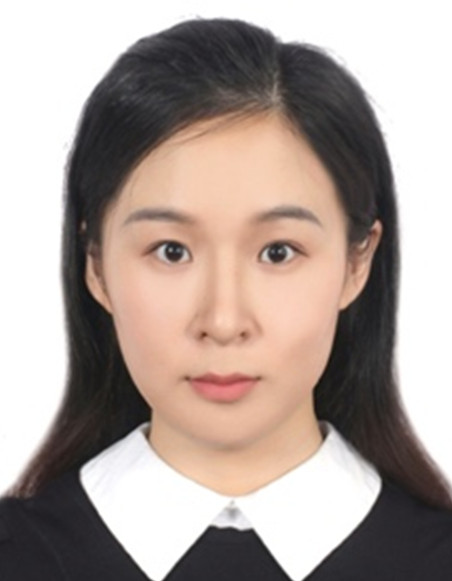
Qian Ma is an Associate Professor of School of Intelligent Systems Engineering, Sun Yat- sen University. She worked as a Postdoc Research Associate at Northeastern University during 2018-2019. She received the Ph.D. degree in the Department of Information Engineering from the Chinese University of Hong Kong in 2017, and the B.S. degree from Beijing University of Posts and Telecommunications (China) in 2012. Her research interests lie in the field of network optimziation and economics. She is the recipient of the Best Paper Award from the IEEE International Symposium on Modeling and Optimization in Mobile, Ad Hoc and Wireless Networks (WiOpt) in 2021 and the recipient of the Best Student Paper Award from the IEEE International Symposium on Modeling and Optimization in Mobile, Ad Hoc and Wireless Networks (WiOpt) in 2015.
—————————————————————–
Indf-05-2: Internet Economics
Abstract
Our societies and economies have been drastically transformed by Internet, the network of networks. With the evolution of information and communication technologies, such as optical fiber communication, smart phones, wireless and mobile access networks and Internet of Things, new applications, business models and market places exploiting Internet have been quickly emerging in the past few decades. In specific, Internet of Things (IoT) enables collection, exchange and analysis of enormous amount of data generated by billions of connected devices and a new wave of digital economy growths.
This proposed session is aimed to expose the audience to some techno-economic issues of Internet and to facilitate accessible and interdisciplinary discussions of Internet economics through five specific subjects. These subject discussions will combine various aspects of Internet technology and services, some prominent economic issues, market mechanisms of the digital economy and future trends. The five subjects are as follows:
- Introduction to EU single digital market
- Internet exchange and peering: practice and trends
- Vertical application in 5G – a Hospital-as-Vertical-Operator case
- Integrated computing and communication resource allocation between edge and cloud service for smart manufacturing
- Blockchain Technology: Key Enabler for Next Generation IoT Services and Applications
The intended audience for this track includes engineers & practitioners, researchers, entrepreneurs, students, academic professors, students, industrial business and technical managers and executives who would like to learn the techno-economic intertwines of Internet economics and to jointly envision its future growths and opportunities through session discussions.
Chairs
Dr. Kenny Huang, Taiwan Network Information Center, Taiwan
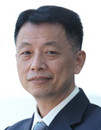
Kenny Huang is currently chairing a working group to recommend a policy for the (de-) selection of Internationalized Domain Names (IDN) country code top-level domains (ccTLD), commonly termed ccPDP4. He is also co-chair of the Chinese Generation Panel. Dr. Huang’s interests at ICANN are varied. Besides IDN, he is also keen on topics like Domain Name System Security Extensions (DNSSEC), Internet governance, policy development, and stakeholder engagement. He actively participates in the Asia Pacific Internet Governance Academy (APIGA) to encourage youth participation. He is also the co-organizer for the ICANN APAC-TWNIC Engagement Forum. A leading figure amongst the Internet communities in Asia, Dr. Huang has taken up roles in many Internet technology and policy organizations including Executive Council of Asia Pacific Network Information Center (APNIC), Addressing Supporting Organization (ASO) Address Council, Chairman and Chief Executive Officer of TWNIC, to name a few. Dr. Kenny Huang holds a doctorate degree in Management of Information System from National Chengchi University, master of science degree in Scientific Computing & Information Technology from South Bank London, and bachelor degree from Tamkang university.
Dr. Hung-Yu Wei, National Taiwan University, Taiwan
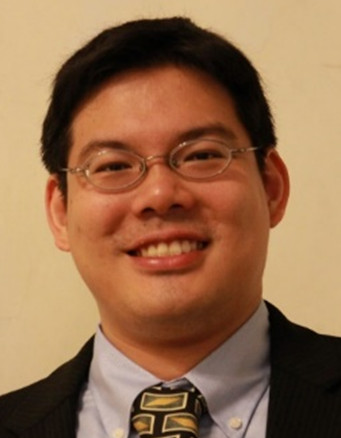
Hung-Yu Wei is a Professor in Department of Electrical Engineering and Graduate Institute of Communications Engineering, National Taiwan University. Currently, he serves as Associate Chair in Department of Electrical Engineering. He received the B.S. degree in electrical engineering from National Taiwan University in 1999. He received the M.S. and the Ph.D. degree in electrical engineering from Columbia University in 2001 and 2005 respectively. He was a summer intern at Telcordia Applied Research in 2000 and 2001. He was with NEC Labs America from 2003 to 2005. He joined Department of Electrical Engineering at the National Taiwan University in July 2005. His research interests include next-generation wireless broadband networks, IoT, fog/edge computing, cross-layer design for wireless multimedia, and game theoretic models for communications networks.Dr. Wei received NTU Excellent Teaching Award in 2008 and 2018. He also received “Recruiting Outstanding Young Scholar Award” from the Foundation for the Advancement of Outstanding Scholarship in 2006, K. T. Li Young Researcher Award from ACM Taipei/Taiwan Chapter and The Institute of Information and Computing Machinery in 2012, Excellent Young Engineer Award from the Chinese Institute of Electrical Engineering in 2014, Wu Ta You Memorial Award from MOST in 2015, and Outstanding Research Award from MOST in 2020. He has been actively participating in NGMN, IEEE 802.16, 3GPP, IEEE P1934, and IEEE P1935 standardization. He serves as Vice Chair of IEEE P1934 Working Group to standardize fog computing and networking architecture. He serves as Secretary for IEEE ComSoC Fog/Edge Industry Community. He is an Associate Editor for IEEE System journal and IEEE IoT magazine, and was an Associate Editor for IEEE IoT journal. He is an IEEE certified Wireless Communications Professional. He was the Chair of IEEE VTS Taipei Chapter during 2016~2017. He serves as program co-coordinator for MOST 6G program in Taiwan. He is currently the Chair of IEEE P1935 working group for edge/fog management and orchestration standard.


